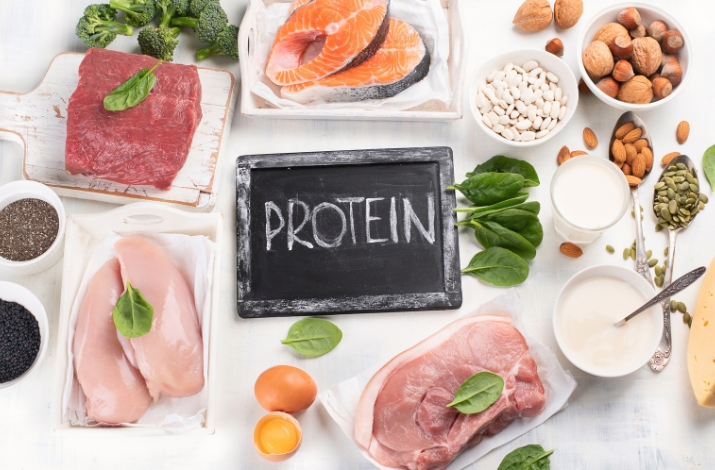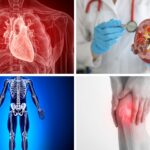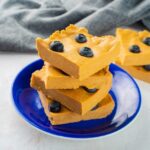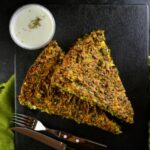Top Reasons to Eat a Diet High in Protein

Consuming a diet with an adequate amount of protein is important for various aspects of health. Here are some of the top reasons to include plenty of protein in your diet:
- Muscle Maintenance and Growth:
- Protein is essential for the building, repair, and maintenance of muscles. It provides the necessary amino acids that the body uses to synthesize proteins, supporting muscle health and function.
- Weight Management:
- Protein helps increase feelings of fullness and satiety, which can contribute to reduced overall calorie intake [1]. Including protein in your diet can be beneficial for weight management and fat loss. A protein-rich diet is also known to improve body composition [2].
- Metabolism Boost:
- The body expends more energy during the digestion and absorption of protein compared to fats and carbohydrates, leading to a higher thermic effect of food [3]. This can contribute to increased calorie expenditure and metabolic rate.
- Blood Sugar Regulation:
- Protein-rich foods have less of an impact on blood sugar levels than high-carbohydrate meals, and protein also slows the effects of carbs on blood sugar [4]. Including protein in your diet can help stabilize blood glucose levels and reduce the risk of insulin resistance.
- Protein-rich foods have less of an impact on blood sugar levels than high-carbohydrate meals, and protein also slows the effects of carbs on blood sugar [4]. Including protein in your diet can help stabilize blood glucose levels and reduce the risk of insulin resistance.
- Bone Health:
- Protein is a key component of bone tissue, and adequate protein intake is essential for maintaining bone health, both as we grow and as we age. It helps in the formation and healing of bones and can reduce the risk of osteoporosis [5]. High protein diets are even associated with a decrease in falling in older adults [6].
- Supports Immune Function:
- Proteins play a crucial role in the immune system by contributing to the production of antibodies and other immune system components [7]. Eating insufficient amounts of protein is associated with an increased rate of infectious diseases [8].
- Hormone Regulation:
- Proteins are involved in the synthesis of hormones that regulate various physiological processes, including growth, metabolism, and mood. Consuming enough protein is essential for maintaining hormonal balance [9].
- Wound Healing and Tissue Repair:
- Proteins are integral to the process of wound healing and tissue repair [10]. Adequate protein intake is crucial for recovering from injuries and surgeries.
- Healthy Hair and Skin:
- Proteins are essential for the structure and function of hair and skin [11]. Because the amino acids found in protein are the building block of hair and skin tissue, a diet rich in protein is essential for healthy hair and skin [12].
- Improved Cardiovascular Health:
- Some studies suggest that a higher protein intake may have favorable effects on cardiovascular health, including improved blood pressure and lipid profiles [13].
As important as it is to eat plenty of protein in your diet, it is equally important to include healthy fats, like those from animal and fruit sources. Protein in nature is always paired with fat, and there appears to be a good reason for this.
After we exercise, our muscles grow, albeit too slightly to notice. In a laboratory setting, scientists can take a small biopsy of the muscle and measure the degree to which the muscle makes new muscle protein (i.e., gets bigger). By giving people a load of protein, scientists can increase this muscle protein growth following exercise. However, by giving people protein AND fat, in a balance of 1:1, they can actually make the muscle protein growth go beyond the protein alone [14]. In other words, protein paired with fat does a better job than protein alone.
However you’re eating it, one thing is clear: prioritizing protein does a body good.
References
- https://www.ncbi.nlm.nih.gov/pmc/articles/PMC2775646/
- https://www.ncbi.nlm.nih.gov/pmc/articles/PMC7539343/
- https://pubmed.ncbi.nlm.nih.gov/8561055/
- https://pubmed.ncbi.nlm.nih.gov/14522731/
- https://www.ncbi.nlm.nih.gov/pmc/articles/PMC4180248/
- https://pubmed.ncbi.nlm.nih.gov/21365169/
- https://pubmed.ncbi.nlm.nih.gov/2105184/
- https://pubmed.ncbi.nlm.nih.gov/17403271/
- http://pressbooks.oer.hawaii.edu/humannutrition/chapter/proteins-functions-in-the-body/
- https://www.ncbi.nlm.nih.gov/pmc/articles/PMC8970868/
- https://my.clevelandclinic.org/health/body/10978-skin
- https://www.ncbi.nlm.nih.gov/pmc/articles/PMC5315033/
- https://jamanetwork.com/journals/jama/fullarticle/201882
- https://pubmed.ncbi.nlm.nih.gov/28978542/
This article is for informational and educational purposes only. It is not, nor is it intended to be substitute for professional medical advice, diagnosis, or treatment and should never be relied upon for specific medical advice.

















